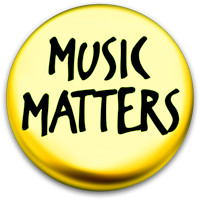Commonly Asked Questions
What types of music services are included on this site?
The services listed on this site are directed to consumers and offered online or via a mobile carrier. The list does not include other types of music uses such as: stand-alone apps, business-to-business services and backend providers, jukeboxes, kiosks, branding, promotional or reward program music uses, music or artist reference sites, or individual artist sites/stores.
How did you put together the list of services on this website?
Music services are listed on this website if they have an agreement with at least one of the three major record companies in the United States. A service will be listed even if it does not have agreements with all three major record companies so long as the service is not using the copyrighted music of a major record company without authorization. However, we will not include services that, to our knowledge, pervasively advertise on sites with widespread infringement. The list also includes services that have signed up for the statutory license available to certain types of radio services, such as SiriusXM, iHeartRadio, and Pandora.
You might be asking “why only the major record companies” or “do these services also offer independent music?” The short answer is that virtually all authorized music services that offer music from the major labels also offer content owned by the independent labels. This makes the list at whymusicmatters.com very broad. If a service offers the music of independent labels only, we hope to expand the list in the future to include those services as well. If you work for a music service that you’d like added to this site, please contact us at info@whymusicmatters.com.
Where can I find statutory (non-interactive radio) services on this site?
Click here for a list of Internet, satellite, and cable radio services that operate under a statutory license. Because the statutory license is available to all eligible services without any review or approval, we have not reviewed the sites listed for compliance with the requirements of the statutory license. Therefore, inclusion on this list is not a waiver of any rights.
How can I find the music I want?
Finding the music you want is often as straightforward as typing the name of an artist or song into the search box on a digital music provider’s website. Many services now offer the entire catalogues of artists and bands. Once you’ve selected a song or album, you can usually preview a short clip before you download or stream it in full. Some services allow you to play the whole song right away.
How can I discover new music?
One way to discover new music is to take advantage of music recommendations provided by most music services, based on your purchase history and current listening habits. Some services can even suggest new radio stations and playlists for you, tailored to your musical tastes.
Can I listen to music on my mobile phone?
The vast majority of mobile phones enable you to play digital music. However, you should check with your wireless provider first to make sure that your phone offers the specific features you want.
How much will it all cost?
There are different factors to consider when estimating how much a digital music service will cost. The good news is that you can try many digital music sites for free, usually supported by advertising or free trial specials. Once you’ve decided, you can choose to purchase individual songs and albums for a select price. Alternatively, you might choose a subscription service for a set or monthly fee.
Is it legal to get music for free?
In many cases, it is — simply browse the free music services we’ve listed on this website. You’ll find that each of these services is authorized and that artists, music labels, and the many other individuals involved in the music production chain are therefore being compensated.
If I sign up to a music service, will I have to commit to a long-term contract?
Not always. Some services — particularly those offering premium streaming — allow you to pay on a month-by-month basis. There are also many services that allow you to buy one individual song at a time.
Some websites are offering music downloads very cheaply. Are these legal?
There are sites that sell music cheaply that are authorized and sites that sell music cheaply that are not. To ensure that creators of music are being compensated, browse this website’s list of authorized services.
How is music stored on my computer?
When you download digital music, songs and albums are stored on your computer’s hard drive, just like any other digital file. Most computers on the market today have ample space for storing your music collection.
Can I add my CDs to my digital music library?
Yes — many digital music services enable you to copy, store, and listen to tracks from CDs in your digital music library. When you insert a CD into your computer, a message will often appear automatically, asking if you want to “import” the song collection. If you click “yes,” these albums and songs are then added to your music library alongside your digital music purchases.
How do I transfer music from my computer to a portable player?
In most cases, you simply connect your portable device— whether an iPod, mobile phone, or similar device — to your computer using a cable wire. Your computer will automatically transfer digital files to your portable device using the music services’ specific software. Most programs automatically sync new songs and playlists to your portable player each time you plug in the device.
If my computer or hard drive breaks, can I get my music again?
This often depends on the terms and conditions of the digital music service you use, so make sure to check carefully before buying.
